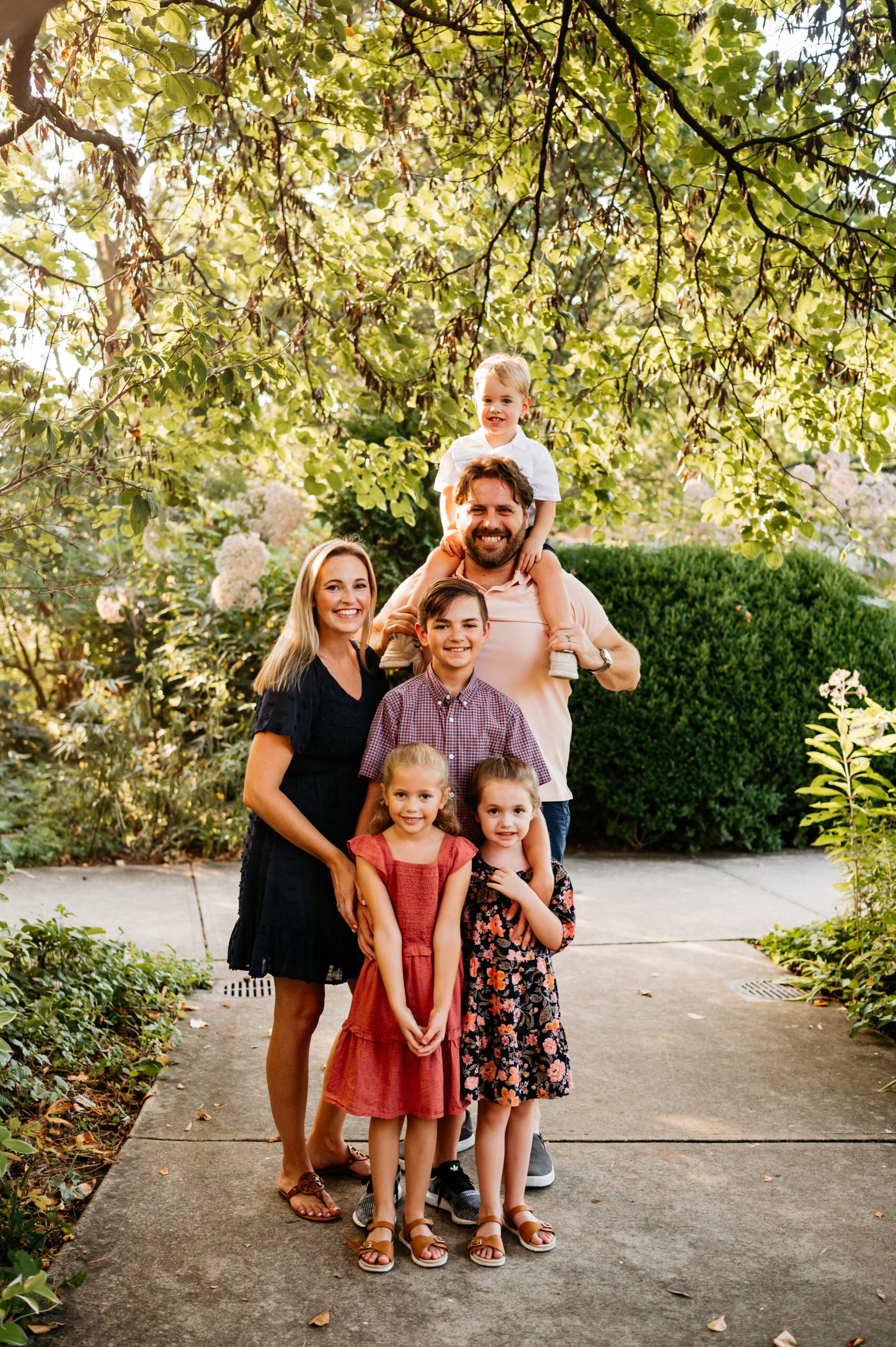Whether we like it or not, emotions are an always thing. There is always something to navigate when it comes to emotions, and sometimes we have a child who experiences BIG emotions. You may currently have a child, or perhaps one on the way, that you can describe as having big emotions, almost every single mom can say they know or have a kiddo like this. It can be a tough season to navigate but with the right tools and strategies, you can both learn and grow through handling emotions together.
This week on the You, The Mother Podcast, I spoke with Rachel Bailey who is a Parenting Specialist that has been serving families for over a decade. Besides being a mother of two, she also has a Master’s Degree in Clinical Psychology, a certification in Positive Discipline, and has provided services as an ADHD Coach, in-home mentor, and therapist. Rachel walks us through what it means to have a child with big emotions, how we can show up for our child with big emotions, how we can foster resiliency and self-esteem, and more! Rachel gives tangible tools and steps to creating a more confident parenting approach with our children with big emotions.
Big emotions are not always the crying meltdowns and tantrums, in fact sometimes big emotions can be much quieter and experienced by the more anxious or sensitive child. Big emotions doesn’t necessarily mean big reactions but rather children who are feeling things very strongly. You may have a big emotions child who does throw the fits, screams and fights, or another child who is extremely sensitive, and surprisingly enough they can be siblings!
So how do we know if our child has big emotions when they are not emoting outloud?
It can be challenging because obviously when you see the meltdowns or crying you can quickly associate that with your child having big feelings and being a strong-willed little one. But it is the quiet, more sensitive child that is in fact not strong-willed at all because they feel so much discomfort at things not going right that instead of emoting their big feelings, they work as hard as they can to have everything be in order. What both of these types of children have in common is that underneath the surface, when they feel a feeling, they feel it very strongly and have a reaction to it.
Is there a difference between just having big emotions and a “tantrumy kid?”
Kids will tantrum, period. But children who do this on a regular basis, who consistently struggle when things are not fair or going their way are the ones we describe as having big emotions. These are the kids who are fine one moment and then losing it the next, having a big affect on their family dynamic and making parents struggle with how to handle these situations.
Rachel says there are three questions to be asked when dealing with kids big emotions:
- How do we foster resilience so children learn that life cannot always go their way?
- How do we do it in a way that fosters healthy self-esteem rather than feeling like they are bad or wrong because of their feelings?
- And as parents, how can we feel like we are not walking on eggshells or feeling guilty about their big feelings?
The first thing we can do is normalize our children’s experiences. Help children to understand their emotions, stop the judgement and come in with a few phrases like, “of course you are upset because…” “no wonder you got upset because….” Even if you do not agree with your child, you can help them understand themselves. This is the first step for both self-esteem and resilience.
The next thing we do is say, “okay, when you feel that way how are you going to handle it?” Teach our children to respect themselves, respect their emotions but not let it control them.
All humans, especially children want to be seen and heard.
It is disarming for our children to have you to say I see you and I hear you.
But how do we move out of this space of feeling shame that our children are having these big emotions?
We need to realize where the shame comes from which, is generally our own upbringing and experiences. We learned as a generation that emotions are bad. When parents take a moment to think about their upbringing and how they learned or didn’t learn about emotions, you are able to shift from a place of judgement to a place of understanding and recognize what is going on with your child. Our emotions are present to tell us things and if we don’t listen to our emotions, they do not go away they just build up inside and what Rachel to describes to children as “piles of yuck.”
We come from a generation who did not have a lot of these tools to help handle emotions so a lot of us are learning these tools for the first time. But these feelings can be triggering to us so how are we able to show up as our best selves for our kids and stay calm in the big emotional moments?
As yourself, how are you in life in general? Are you overwhelmed, stressed, feeling like you have no control. First and foremost, I see you. But know, when we have a lot of yuck in our lives, it is so hard to not see our children’s big emotions as a threat. When we are in such an overwhelmed state of mind, our fight or flight response is pretty much on all the time, leading to a high trigger point with our kids.
However, if you are one of the rare mom’s currently in a good mental space in life at this moment, you can learn some strategies on how not to see your kids emotions as a threat. When we don’t see our children’s emotions as a threat, we handle it totally differently. First, you need to stop future thinking. You know, the times when your child is throwing a fit and all you can think about is 10 years from now when they will have no friends and 20 years from now when you are retiring and they move home forever. Stop that thinking right now. When you get into that future thinking, you get into a rabbit hole of if I don’t handle these feelings now, my child will be ruined for life. Future thinking doesn’t allow you to focus on the now, and focusing on the now when it comes to emotions is so important for helping your child understand them and work through them.
So how can we show up for our children with big emotions but not necessarily fix their problems?
The worst thing you can do for an anxious, sensitive or big emotion child is to fix their problems, because then you create a bigger problem of your child being reliant on you to always be there to fix their issue. It is important for parents to be aware of their desire to fix their children’s problems but then also teach children the skill of problem solving outside of the moment.
One thing we can do is teach our kids the language of problem solving. Teaching kids the phrases “Can I please” or “Can you please,” can solve 95% of interpersonal problems. Children who are afraid to talk to a peer or a teacher can start their interaction with one of these two phrases which is such a great problem solving phrase for them. Another fun way to help your child is to do fun problem solving activities at home. When you are sitting around the dinner table you can present your problem to the table and talk out all of the solutions you can come up with to solve your problem. What this does is teach kids there are many solutions to a problem and also that problem solving can be fun.
Finally, how do we stop getting stuck in these situations that aren’t going well?
If you recognize that you are in a cycle of yuck, i.e, your child’s emotions are triggering you and you are triggering your child, it is up to us to break that cycle. You are feeling discomfort and your child senses that which makes their yuck worse.
It starts with us to help our children break this feeling of yuck.
We are learning all about big emotions alongside of our children. The goal is not to be a perfect mother because motherhood is messy, and we are not always going to get it right, The most important thing is to be self-aware when we mess up and come back and repair. So as you navigate the big feelings with your child, realize it is a beautiful thing to grown, and learn how to work through these emotions alongside your children.
Be sure to check out more of Rachel Bailey’s work on her website, Instagram, Podcast, and Youtube. You can also download her FREE training here.
Supporting You, The Mother,
Abbey Williams, MSW, LSW




